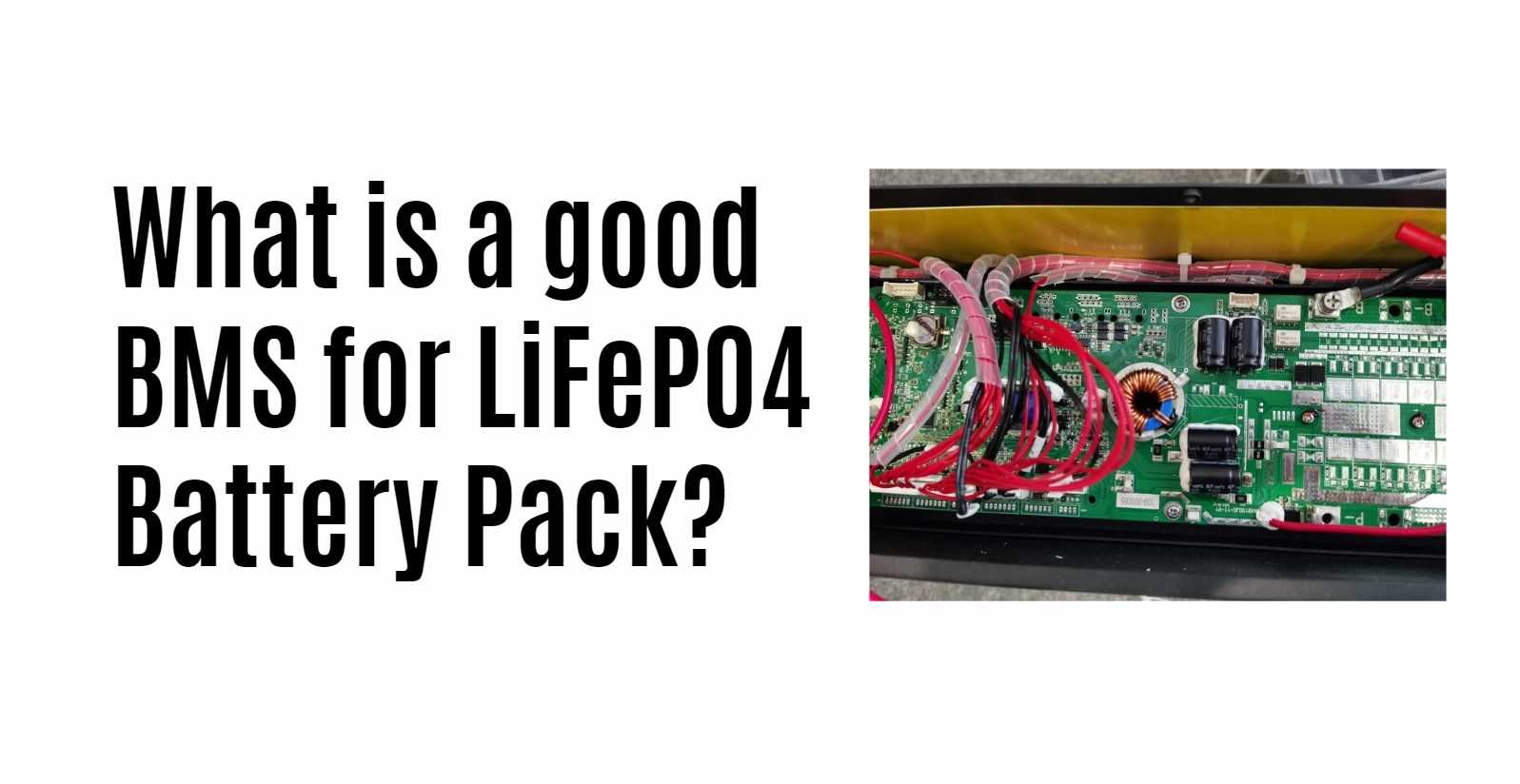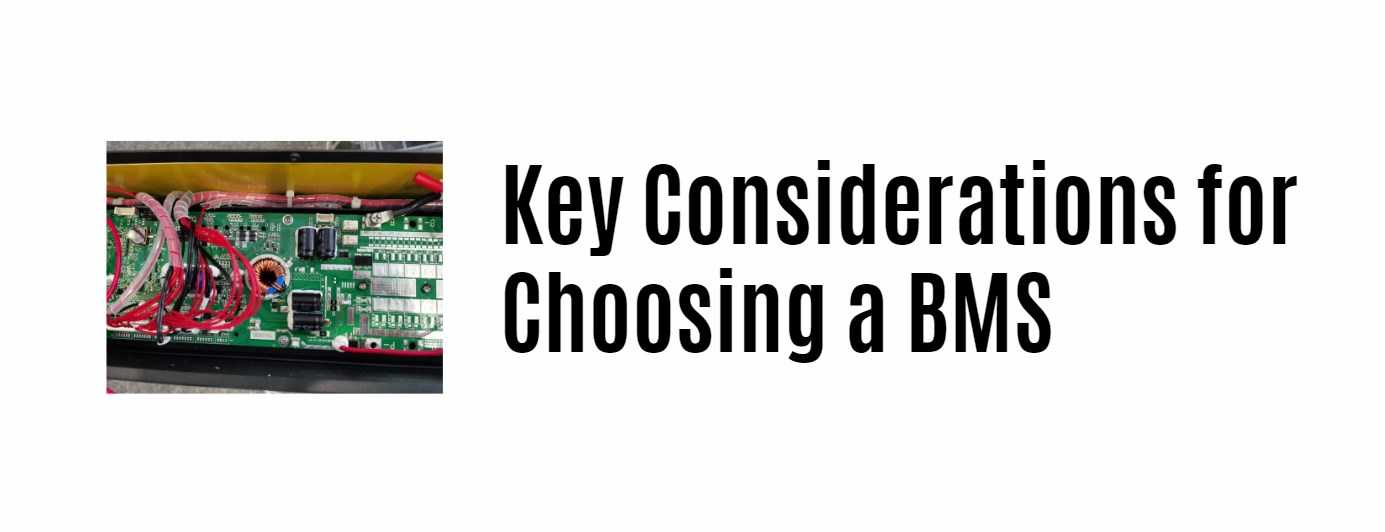When it comes to managing and optimizing the performance of LiFePO4 battery packs, selecting the right Battery Management System (BMS) is crucial. A good BMS not only enhances battery safety but also extends its lifespan and improves overall efficiency. In this article, we will explore the essential features of a quality BMS, recommend some of the top options available, and discuss considerations for choosing the best BMS for your LiFePO4 battery pack.
Understanding the Role of a BMS
A Battery Management System (BMS) is an electronic system that manages a rechargeable battery pack by monitoring its state, calculating its secondary data, reporting that data, and controlling its environment. The primary functions of a BMS include:
- Voltage Monitoring: Ensures that each cell operates within safe voltage limits.
- Current Management: Monitors and regulates current flow to prevent overcurrent conditions.
- Temperature Control: Protects against overheating by monitoring temperature and adjusting charging/discharging rates.
- Cell Balancing: Ensures all cells in the pack are charged and discharged evenly to prolong battery life.
- Fault Protection: Provides safeguards against short circuits, overcharging, and deep discharging.
Key Features to Look for in a BMS for LiFePO4 Battery Packs
1. Cell Balancing
A good BMS should have active or passive cell balancing capabilities. This feature helps maintain equal charge levels across all cells in the battery pack, which is crucial for maximizing performance and lifespan.
2. Voltage and Current Ratings
Ensure that the BMS can handle the voltage and current requirements of your specific LiFePO4 battery pack. For example, if you are using a 48V system, the BMS should be rated accordingly.
3. Temperature Monitoring
Look for a BMS that includes temperature sensors to monitor cell temperatures. This feature prevents overheating and ensures safe operation under various conditions.
4. Communication Protocols
Many modern BMS units come equipped with communication protocols such as CAN bus or RS485. These protocols allow for real-time data monitoring and integration with other systems, providing insights into battery health and performance.
5. Overcurrent Protection
A reliable BMS should include overcurrent protection to prevent damage from excessive current draw. This feature is essential for maintaining safety during high-load applications.
6. User-Friendly Interface
Choose a BMS with an intuitive interface that allows easy access to data such as state of charge (SoC), state of health (SoH), and individual cell voltages.
Top Recommended BMS Options for LiFePO4 Battery Packs
1. Daly Smart BMS
The Daly Smart BMS is a popular choice among users of LiFePO4 batteries due to its robust features:
-
Voltage Range: Available in various configurations (12V, 24V, 36V, 48V).
-
Balancing Type: Supports both active and passive balancing.
-
Communication: Offers Bluetooth connectivity for real-time monitoring via smartphone apps.
-
Protection Features: Includes overvoltage, undervoltage, overcurrent, and short circuit protection.
2. JBD Smart BMS
The JBD Smart BMS is known for its versatility and advanced features:
-
Voltage Range: Suitable for 12V to 72V configurations.
-
Cell Balancing: Active balancing capabilities enhance performance.
-
Temperature Sensors: Integrated temperature monitoring for safe operation.
-
Communication Protocols: Supports CAN bus communication for seamless integration with other systems.
3. VOTRONIC Battery Management System
The VOTRONIC system is designed specifically for mobile applications like RVs:
-
Voltage Range: Configurable for various voltage systems.
-
User-Friendly Display: Provides real-time data on battery status.
-
Protection Features: Comprehensive safety features including temperature monitoring and overcurrent protection.
4. Renogy Rover Series MPPT Charge Controller with Built-in BMS
Renogy offers an integrated solution combining an MPPT charge controller with a built-in BMS:
- Voltage Compatibility: Works well with 12V systems.
- Efficient Charging: Optimizes solar energy collection while managing battery health.
- User-Friendly Interface: Easy-to-read display showing real-time data.
Data Chart: Comparison of Recommended BMS Options
| Feature | Daly Smart BMS | JBD Smart BMS | VOTRONIC System | Renogy Rover MPPT |
|---|---|---|---|---|
| Voltage Range | 12V – 48V | 12V – 72V | Configurable | 12V |
| Balancing Type | Active/Passive | Active | Passive | Integrated |
| Communication | Bluetooth | CAN bus | User-friendly display | Integrated MPPT |
| Overcurrent Protection | Yes | Yes | Yes | Yes |
| Temperature Monitoring | Yes | Yes | Yes | Yes |
Latest News on Battery Management Systems
As of October 2024, advancements in Battery Management Systems continue to evolve rapidly:
Integration with IoT Technologies
New developments are integrating IoT technologies into BMS solutions, allowing users to monitor battery performance remotely through smart devices. This trend enhances user experience by providing real-time data analytics.
Focus on Sustainability
Manufacturers are increasingly focusing on sustainable practices in battery production and management systems. Innovations aim to reduce environmental impact while enhancing efficiency in energy storage solutions.
FAQs About Choosing a BMS for LiFePO4 Battery Packs
1. Can I use any BMS with my LiFePO4 batteries?
No, it is essential to choose a BMS specifically designed for LiFePO4 chemistry to ensure compatibility and optimal performance.
2. How do I determine the right voltage rating for my BMS?
Select a BMS that matches the total voltage of your battery pack configuration (e.g., 12V, 24V, or 48V).
3. What happens if I don’t use a BMS?
Without a proper BMS, your battery pack may be at risk of overcharging, overheating, or deep discharging, leading to reduced lifespan or even catastrophic failure.
4. How often should I check my battery management system?
Regularly monitor your system’s performance through its interface or app to ensure everything operates within safe parameters.
Conclusion: Finding the Right BMS for Your LiFePO4 Battery Pack
In conclusion, selecting a good Battery Management System (BMS) is vital for maximizing the performance and longevity of your LiFePO4 battery pack. By considering features such as cell balancing, voltage ratings, temperature monitoring, and communication protocols, we can make informed decisions that enhance safety and efficiency in our energy storage solutions.At Redway Battery, we specialize in manufacturing high-quality lithium LiFePO4 batteries tailored to meet diverse needs across various applications. For quick quotes on custom solutions or wholesale inquiries, feel free to contact us today!





